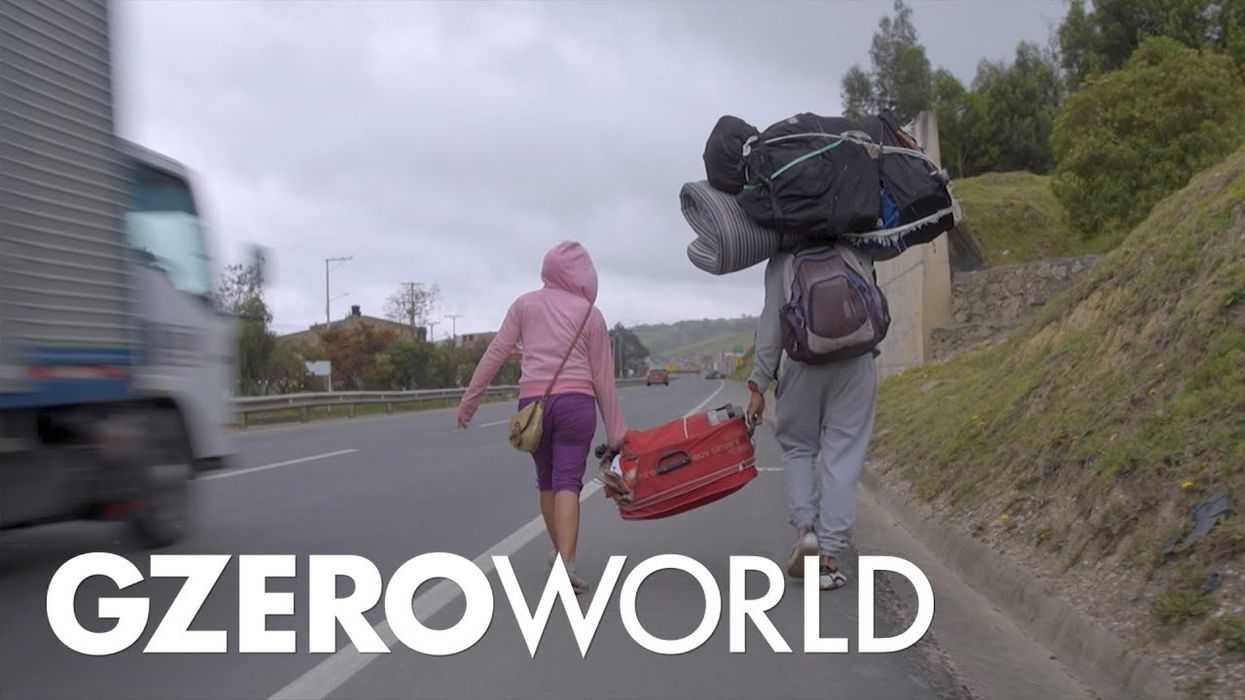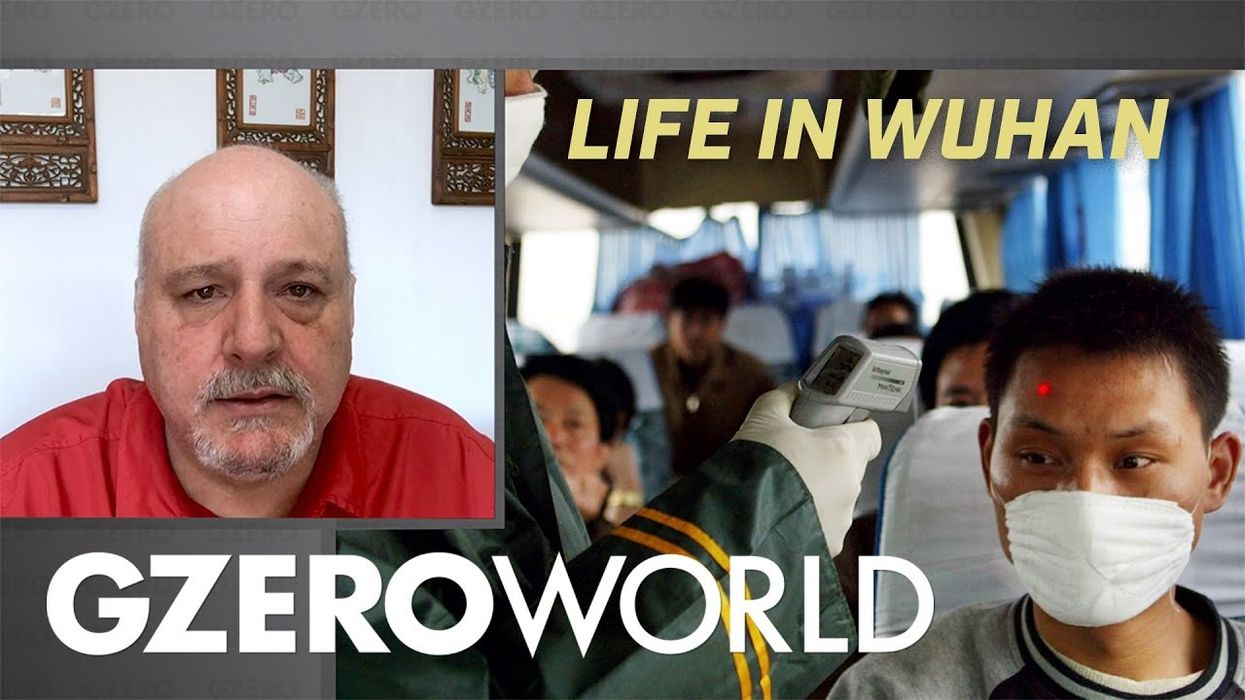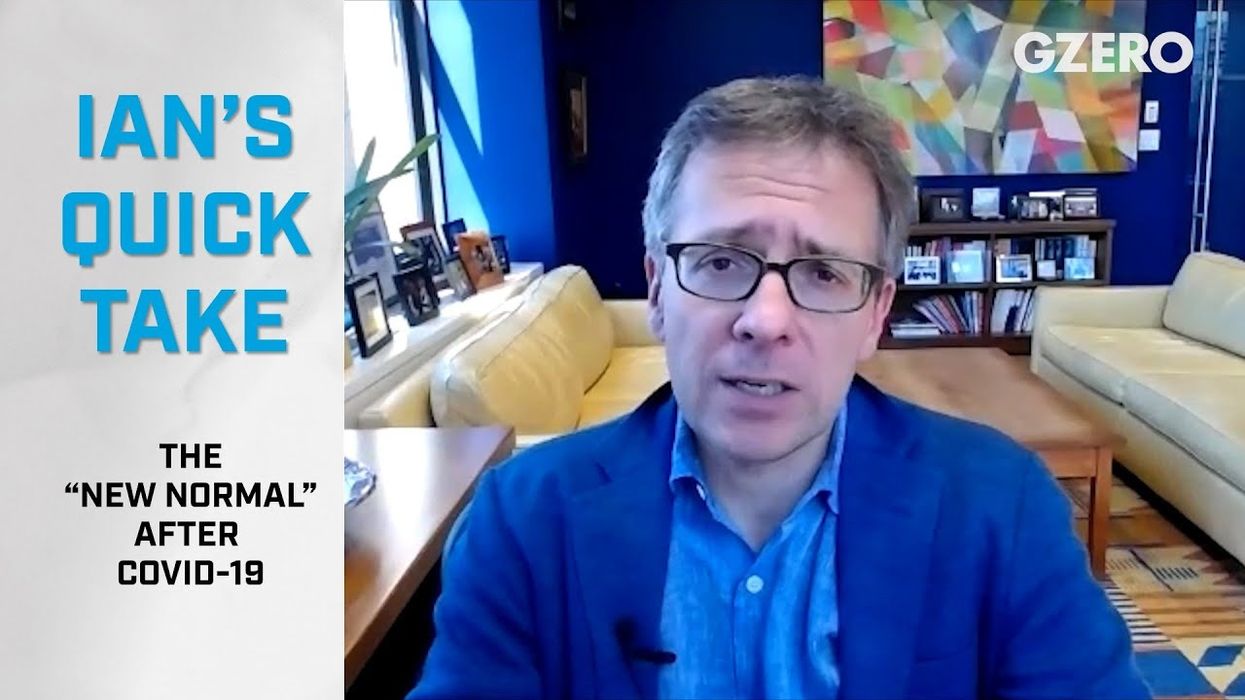Science & Tech
COVID lockdowns in Colombia forcing refugees to return to Venezuela
GZERO World takes viewers to Colombia as Venezuelan refugees risk everything once again—this time to cross back into their home country. As pandemic lockdowns and economic downturn threaten jobs and livelihood in Colombia, many are left with no choice but to return to Venezuela and an uncertain future. Kendry Fernando tells his story as he walks hundreds of miles with his family, looking for work, and considering a return home to repressive conditions in Maduro's Venezuela.
Jul 21, 2020



